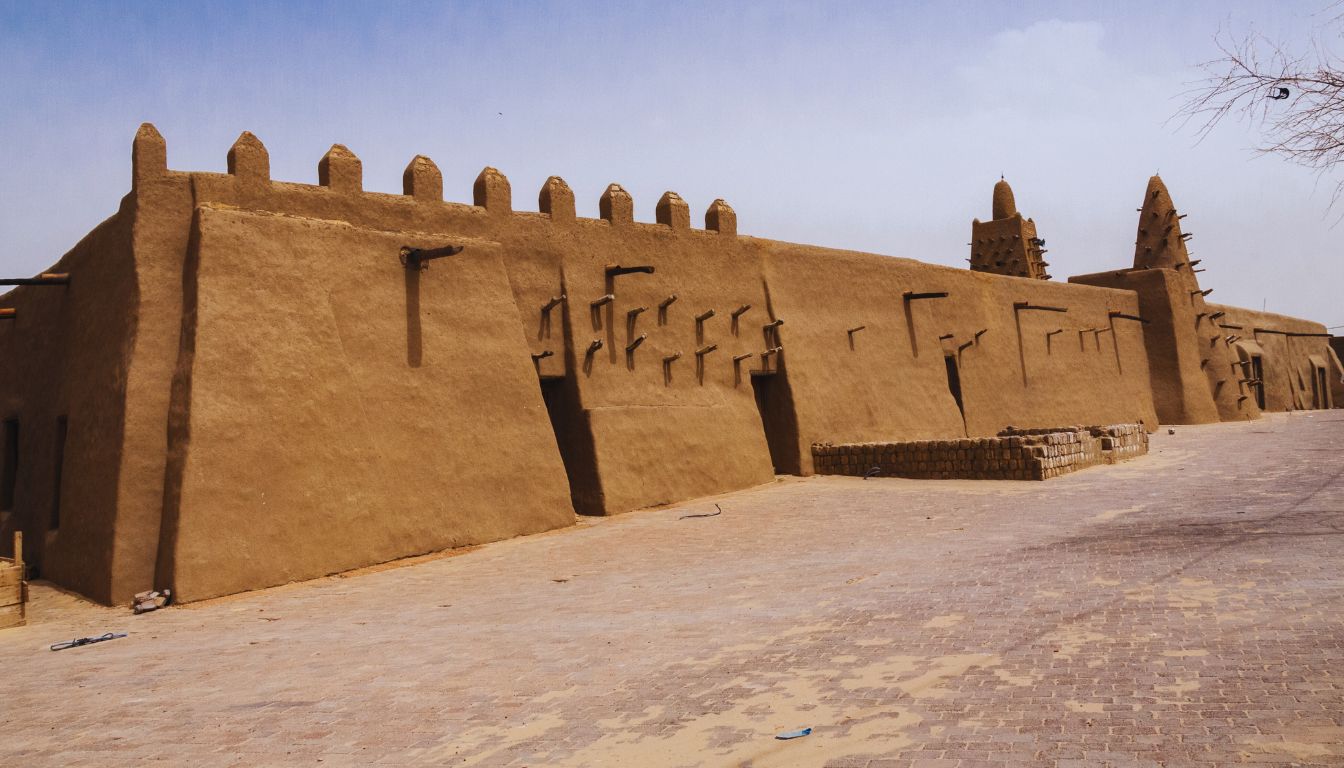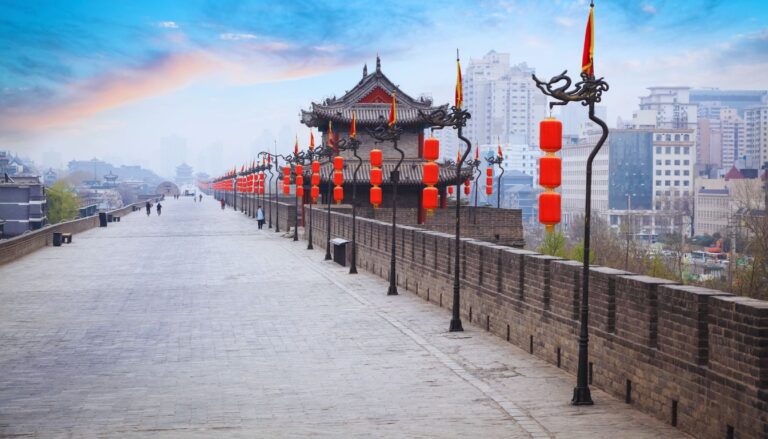Timbuktu, a name that evokes mystery and adventure, stands as a testament to the rich cultural heritage of Mali and the Sahara Desert. Once a thriving center of Islamic learning and a key stop on trans-Saharan trade routes, Timbuktu continues to captivate the imagination of travelers worldwide. This guide will introduce you to the wonders of Timbuktu and the fascinating Tuareg culture that has shaped this legendary city.
Table of Contents
Best Places to Visit
- Djinguereber Mosque: This iconic mud-brick mosque, built in 1327, is a masterpiece of Sudano-Sahelian architecture and a symbol of Timbuktu’s golden age.
- Sankore Madrasah: Once a renowned center of Islamic learning, this ancient university complex remains a vital part of Timbuktu’s cultural heritage.
- Sidi Yahya Mosque: Another of Timbuktu’s three great mosques, known for its beautiful mihrab (prayer niche) and historical significance.
- Ahmed Baba Institute: Home to thousands of ancient manuscripts, this modern facility works to preserve Timbuktu’s literary treasures.
- Ethnological Museum: Offers insights into the diverse cultures of Mali, including exhibits on Tuareg life and traditions.
Things to See and Do
- Explore the Old Town, a UNESCO World Heritage site, with its narrow streets and traditional mud-brick architecture.
- Visit local artisans to see traditional Tuareg crafts like leather work, silversmithing, and indigo dyeing.
- Take a guided tour to learn about Timbuktu’s role in the trans-Saharan salt and gold trade.
- Attend a performance of traditional Tuareg music, featuring the hypnotic sounds of the desert blues.
- Visit the Market to experience the vibrant local culture and perhaps purchase unique Tuareg handicrafts.
- Join a camel trek into the Sahara Desert for an unforgettable glimpse of the Tuareg nomadic lifestyle.
- Witness a desert sunset from the sand dunes just outside the city.
- Learn about the ongoing efforts to preserve Timbuktu’s ancient manuscripts and historical sites.
Best Time to Visit
The ideal time to visit Timbuktu is during the cooler months from November to February. During this period, daytime temperatures are more manageable, typically ranging from 77°F to 86°F (25°C to 30°C).
The hot season from March to May sees temperatures soaring above 104°F (40°C), making outdoor activities challenging.
The rainy season from June to October brings occasional showers but can also offer a unique perspective on the desert landscape.
How to Get Around
- Walking: The old town of Timbuktu is compact and best explored on foot.
- Donkey Carts: A traditional and fun way to get around the city.
- 4×4 Vehicles: Necessary for longer trips into the desert or to nearby villages.
- Camel: For an authentic desert experience, camel rides can be arranged for short trips or longer desert excursions.
Where to Stay
- Traditional Guesthouses: For an authentic experience, stay in a traditional mud-brick guesthouse in the old town.
- Desert Camps: Some tour operators offer overnight stays in Tuareg desert camps for a unique nomadic experience.
- Modern Hotels: A few modern hotels are available on the outskirts of the city, offering more familiar amenities.
How to Stay Safe
Timbuktu and the surrounding region have faced security challenges in recent years. It’s crucial to stay informed about the current situation and follow these safety tips:
- Check your government’s travel advisories before planning your trip.
- Consider traveling with a reputable tour company familiar with the area.
- Respect local customs and dress modestly to avoid unwanted attention.
- Stay hydrated and protect yourself from the sun in the harsh desert climate.
- Be cautious about photography, especially of people or sensitive sites, and always ask for permission.
- Carry a basic first-aid kit, as medical facilities may be limited.
Best Places to Book Your Trip
Planning your dream trip is easy with trusted travel platforms. To secure the best deals on flights, accommodations, and tours, check out:
- Booking.com: Offers a wide range of hotels, apartments, and hostels to suit every budget.
- GetYourGuide: Book unforgettable experiences like guided tours, cooking classes, and fast-track passes.
- Expedia: A great platform for bundling flights, hotels, and car rentals for a seamless booking experience.
- Skyscanner: Perfect for finding the best deals on flights.
Tuareg Culture Highlights
The Tuareg, often called the “Blue People” due to their indigo-dyed clothing, have a rich cultural heritage:
- Nomadic Traditions: Though many Tuareg now live in cities, their culture still honors their nomadic past.
- Artisanship: Renowned for their metalwork, leather crafts, and distinctive blue-and-white textiles.
- Music: Tuareg music, particularly “desert blues,” has gained international recognition.
- Language: The Tuareg speak Tamashek and use a unique script called Tifinagh.
- Social Structure: Traditionally matrilineal, Tuareg society gives women a prominent role.
Conclusion
Timbuktu, with its ancient mosques, scholarly legacy, and enduring Tuareg culture, offers a journey into the heart of Saharan history and tradition. As you explore its mud-brick streets, delve into its intellectual past, and experience the warmth of Tuareg hospitality, you’ll discover a place where legend and reality intertwine. Let Timbuktu’s timeless allure inspire you, leaving you with unforgettable memories of this remarkable crossroads of culture and desert mystique.













